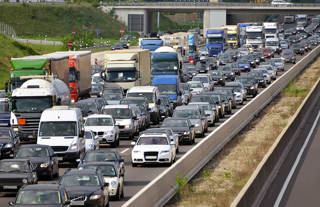Almost half of UK fleets expect to be affected by the introduction of Clean Air Zones (CAZ) and the London Ultra-Low Emissions zone (ULEZ).
In total, 43% of all UK businesses surveyd by Arval said they will be impacted – but there was some variance, as only 27% of businesses with fewer than 10 employees believed there would be an issue compared to more than half (56%) of those with more than 1,000 staff.
According to the Arval Mobility Observatory research, which also asked businesses how they will respond to the introduction of CAZs and the ULEZ, more than three quarters (76%) said they will replace vehicles so they meet the new standards, whereas 27% will find other types of transportation to allow them to continue doing business within the zones, and 27% will make no changes, accepting the impact and cost.
Shaun Sadlier, head of Arval Mobility Observatory in the UK, said: “In most places, the introduction of CAZs are really designed to remove the older, less clean technology vehicles from cities and the truth is that because the regulations are relatively straightforward, many fleets are already compliant. Over the next couple of years, just through the normal replacement of vehicles, most should meet the rules.
“It’s also thought-provoking to see that around a quarter are planning to use alternative modes of transport. It would be fascinating to know what those alternatives are, especially whether some fleets are going to be able to make a switch into public transport or other mobility options.
“Finally, it is worth noting the difference in the impact of CAZs between the small and large fleets who are impacted by the introduction of Ultra Low Emission Zones. This is something that is affecting larger businesses much more, presumably as a result of their operational footprint, and their response is much more structured as a result. Smaller organisations may feel that they are not as impacted or are reacting in a more ad-hoc fashion - and they may account for a majority of more than a quarter of fleets impacted, which plan to simply pay any charge.”
In the first few weeks of the pandemic, the Government told Commercial Fleet it had agreed with Leeds, Birmingham and Bath to delay the introduction of CAZs in their areas until after January 1, 2021.
Other towns and cities planning to charge vehicles to drive into their CAZs, such as Bristol and Newcastle, were already planning to launch their schemes after that date.
The enforced delay has come as towns and cities are also reporting record reductions in pollution, with low levels of traffic due to lockdown.





















Login to comment
Comments
No comments have been made yet.